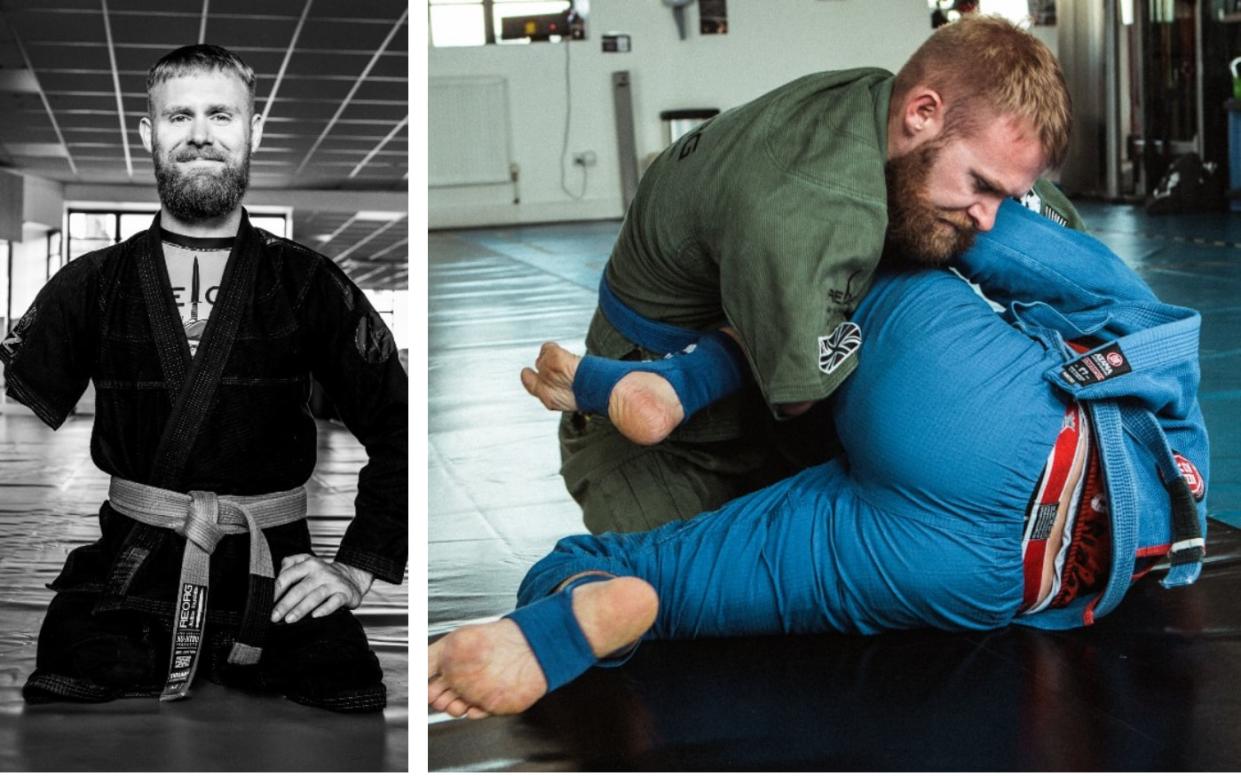Meet the triple-amputee Royal Marine who keeps on fighting

When Mark Ormrod was told he was going to spend the rest of his life in a wheelchair, he was crushed. In 2007, he was a 24-year-old Royal Marine on his second tour of duty in Afghanistan when he stepped on an improvised explosive device that tore off both his legs above the knee and his right arm above the elbow.
When the dust cloud cleared to reveal his injuries, Ormrod’s first thought was: “What a prick… you’re supposed to be an elite soldier and you’ve just been beaten by a lump of metal in the ground.” He blacked out as the helicopter was evacuating him, and his fellow marines thought he had died.
In hospital, the man who had stood 6ft 2in and weighed a lean 16 stone was forced to face the reality of a very different life ahead.
Ormrod made a decision for the sake of his family and for all the Royal Marine “brothers” who evacuated him from that dusty battlefield: he was going to walk again. But more than that, he was determined that his life would not be defined by what had been taken away from him. He decided to find out exactly how far he could push his battle-torn body.
Quite far, it turns out. The UK’s first triple-amputee to survive the Afghanistan conflict, Ormrod ditched the wheelchair in 2009, learning to walk with state-of-the-art prosthetics. He has since won medals at the Invictus games, including gold in the 50 metres breast-stroke, after stepping in at the last minute – a feat that earned him the Exceptional Performance Award and lead to Prince Harry calling him “Superman”.
But arguably Ormrod’s main passion is martial arts. Before his injury, he competed in full contact kickboxing, Muay Thai and boxed for the Marines; since the explosion, he’s learned to love new disciplines that challenge his body – even though he himself admits he was sceptical at first.
“I had a couple of people from different disciplines approach me and say: ‘Do you want to come and train in this martial art, or that martial art? We can get you to a black-belt standard no matter what your injuries’,” he told me when I interviewed him for my Healthy Beast podcast.
“I just knew it was bulls---. These disciplines involved kicking and punching. And as much as I wanted martial arts back in my life. I didn't want to do it on sympathy, I wanted to do it on hard work and effort.”
Then Ormrod met Colour Sergeant Sam Sheriff, the founder of REORG, a Royal Marines charity that teaches Brazilian jiu-jitsu to serving personnel and veterans to help them overcome mental and physical health challenges. Sheriff introduced Ormrod to the “combat room” – a converted squash court with mats on the floor and walls. He was immediately hooked.
“Brazilian jiu-jitsu is all about grappling and ground-fighting and I was like, ‘well I can do this because I'm sat down with no legs – I'm on the ground anyway’. In many ways, I’m at more of an advantage because I've got less stuff for people to grab.”
Ormrod has been training for around three years now, and has just been awarded a stripe on his blue belt, something they don’t give to just anyone, no matter how many limbs they have.
He’s become passionate about promoting Brazilian jiu-jitsu – a key component in the arsenal of UFC fighters – to anyone, no matter what their background may be. It is a tough discipline for everyone, but that is partly the point.
“The stuff you learn on the mat translates into your life off the mat,” he said. “Imagine you've got someone who’s never been in the military and never trained in martial arts. They go to their first class and they feel the way everyone feels. But they pursue it and they keep going. They're building resilience and strength – they're bringing so many qualities into their life outside of the dojo.
As well as taking on seemingly impossible new physical challenges, Ormrod works as a motivational speaker, where he is able to helps to give people a fresh perspective on whatever problems they face in their own lives. Earlier this month Ormrod and Sheriff were both awarded an MBE for outstanding services to the Royal Marines and the veteran community.
Ormrod has many thousands of fans across social media platforms, where he motivates people with his workouts, but also entertains them by doing things like trying to balance on his daughter’s hoverboard. His eldest daughter was two when Ormrod was injured, and immediately after the injuries he wondered how people would react to him. He worried kids would stare and ask: “Why’s your daddy a freak?” Now he has three children and stands proudly in his prosthetics.
“I put myself out there, walk around with these prosthetics on show,” he said. “I can't expect people not to look, to ask questions, to point. Especially children.
“If I cared what people thought or if I wasn't willing to talk about it, why am I walking around in shorts and a T-shirt?”


